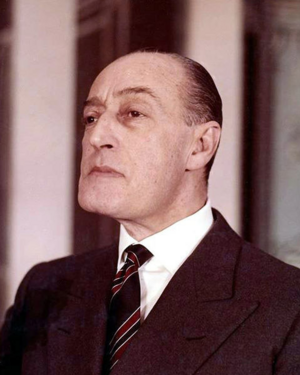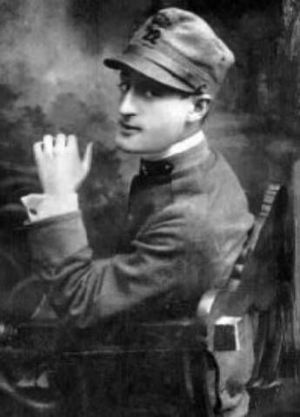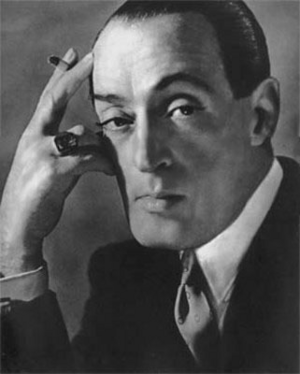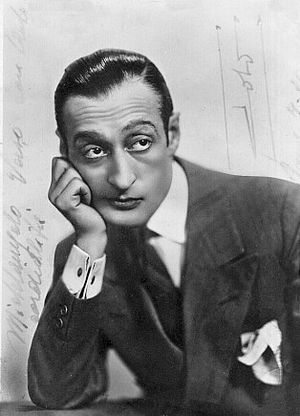Totò facts for kids
Quick facts for kids
Totò
|
|
|---|---|
 |
|
| Born |
Antonio Vincenzo Stefano Clemente
15 February 1898 |
| Died | 15 April 1967 (aged 69) Rome, Italy
|
| Other names | Il Principe della risata |
| Occupation |
|
| Years active | 1922–1967 |
| Spouse(s) |
Diana Bandini Lucchesini Rogliani
(m. 1935; annulled 1939) |
| Children | 2, including Liliana de Curtis |
Totò (born Antonio Vincenzo Stefano Clemente on February 15, 1898 – died April 15, 1967) was a very famous Italian actor, comedian, and writer. People often called him il Principe della risata, which means "the Prince of Laughter." He was known for his funny and sometimes clever characters in plays and many successful movies from the 1940s to the 1960s. Totò also worked with famous Italian film directors in more serious roles. Many people think he was one of Italy's most popular performers ever.
Contents
Totò's Early Life and Beginnings
Totò was born Antonio Vincenzo Stefano Clemente on February 15, 1898, in a poor area of Naples, Italy. His mother was Anna Clemente, and his father was Giuseppe de Curtis. For a long time, his father did not officially recognize him. Because of this, Totò felt sad growing up without a father.
When he was 35, in 1933, he was adopted by Marquis Francesco Maria Gagliardi Focas. Later, in 1937, his birth father, Marquis de Curtis, finally recognized him. This meant Totò became an heir to two noble families!
Even though his mother wanted him to become a priest, Totò started acting as a comedian when he was only 15 years old, in 1913. He performed in small theaters using the name Clerment. He often copied characters made famous by another actor, Gustavo De Marco. In these smaller shows, Totò met other well-known artists like Eduardo and Peppino De Filippo.
Totò served in the army during World War I. After the war, he went back to acting. He learned from the guitti, who were Neapolitan comedians who performed without a script. They were part of a long tradition called the Commedia dell'Arte. Totò started to create his unique style. This included moving his body like a puppet, making strong facial expressions, and having a very funny, sometimes silly, sense of humor. He often joked about simple human needs like hunger.
Totò's Amazing Career
In 1922, Totò moved to Rome to perform in bigger theaters. He became very good at a type of show called avanspettacolo. This was a mix of music, dancing, and comedy that happened before the main show. These shows were also known as rivista (meaning "review"). By the 1930s, he had his own acting company and traveled all over Italy.
In 1937, Totò appeared in his first movie, Fermo con le mani. After that, he starred in 96 more films! Many of his movies had "Totò" in their titles because they were made to show off his amazing performances.
Some of his most famous films include Guardie e ladri (Cops and Robbers), Totò a colori (Totò in Color), which was one of Italy's first color movies, and I soliti ignoti (Big Deal on Madonna Street). He also showed his serious acting skills in films like The Hawks and the Sparrows.
During his long movie career, Totò acted with almost all the major Italian actors of his time. He often worked with Aldo Fabrizi and Peppino De Filippo. Peppino De Filippo was one of the few actors whose name appeared in movie titles alongside Totò's, such as in Totò, Peppino e la malafemmina.
Totò's Writing and Songs
In the 1950s, Totò began writing poetry. One of his most famous poems is A Livella. In this poem, a proud rich man and a humble poor man meet after they die and talk about their differences.
Totò was also a songwriter. His song Malafemmena (meaning "Wayward Woman") is a classic of Neapolitan popular music. He wrote this song for his wife, Diana, after they separated.
Totò's Personal Life
In 1956, while on tour, Totò lost most of his eyesight. This happened because of an eye infection that he didn't treat right away. He didn't want to cancel his shows and disappoint his fans. Even with this challenge, his acting and work schedule were almost never affected.
Totò passed away on April 15, 1967, in Rome, at the age of 69, after having several heart attacks. So many people wanted to say goodbye that there were three funeral services! The first was in Rome, and the second was in his hometown of Naples. A few days later, a third service was held in the Rione Sanità, the popular neighborhood where he was born. During this service, an empty coffin was carried through the crowded streets.
Totò's Noble Titles
In 1946, a group that advised the Kingdom of Italy on noble matters stopped working. Because of this, a court in Naples officially recognized Totò's many noble titles. His full name became very long: Antonio Griffo Focas Flavio Ducas Komnenos Gagliardi de Curtis of Byzantium, His Imperial Highness, Palatine Count, Knight of the Holy Roman Empire, Exarch of Ravenna, Duke of Macedonia and Illyria, Prince of Constantinople, Cilicia, Thessaly, Pontus, Moldavia, Dardania, Peloponnesus, Count of Cyprus and Epirus, Count and Duke of Drivasto and Durazzo.
It was quite an achievement for someone born in a poor neighborhood to gain so many titles! However, Totò often made fun of these titles because he felt they weren't truly important. When he wasn't using his stage name, Totò, he usually just called himself Antonio de Curtis.
Totò's Films
Totò starred in 97 films during his career. Here are some of them:
- Hands Off Me! (1937)
- The Happy Ghost (1941)
- Toto Tours Italy (1948)
- Fear and Sand (1948)
- Toto Looks for a House (1949)
- The Emperor of Capri (1949)
- Toto the Sheik (1950)
- Cops and Robbers (1951)
- Toto in Color (1952)
- Toto and the Women (1952)
- The Gold of Naples (1954)
- The Band of Honest Men (1956)
- Big Deal on Madonna Street (1958)
- The Law Is the Law (1958)
- Gentlemen Are Born (1960)
- The Two Marshals (1961)
- Toto vs. Maciste (1962)
- Toto and Peppino Divided in Berlin (1962)
- The Monk of Monza (1963)
- The Hawks and the Sparrows (1966)
- Treasure of San Gennaro (1966)
- Caprice Italian Style (1968) (released after his death)
Totò as a Screenwriter
Totò also helped write the scripts for some movies, including:
- Il medico dei pazzi
- Totò all'inferno
- Siamo uomini o caporali
Totò on TV
- TuttoTotò (1967, shown after his death)
See also
 In Spanish: Totò para niños
In Spanish: Totò para niños
- Malafemmena, a famous song written by Totò in 1951
 | Victor J. Glover |
 | Yvonne Cagle |
 | Jeanette Epps |
 | Bernard A. Harris Jr. |




